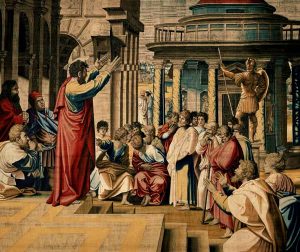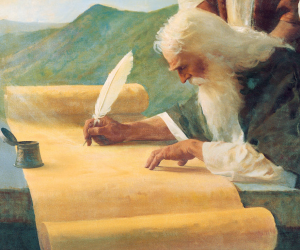This Sunday’s readings present us a tableau, so to speak, in three parts.
It gives us the picture of three men:
Isaiah, (Is.6:1-8) 


the apostle Paul, (1 Cor.15:1-11)
Simon (Lk.5:1-11) who was to become Peter, one of the twelve apostles of Jesus.
Though they lived many centuries apart, they have one thing in common: they saw themselves as they were!
This may seem a strange characteristic but it is no small achievement in our world of… image-making where people show off trying to impress others!…
Isaiah says to God: “What a wretched state I am in, I am a man of unclean lips.”
Paul confesses openly: “I am the least of the apostles, I hardly deserve the name apostle.”
Simon begs Jesus: “Leave me, Lord; I am a sinful man.”
Yes, they saw themselves as they were but… what they saw was not the full picture!
It needed to be corrected, to be… enhanced, could we say, and by God himself!
To Isaiah, the angel said: “Your sin is taken away.”
Paul recognises: “The grace that God gave me has not been fruitless.”
Jesus assures Peter: “Do not be afraid; from now on it is men you will catch.”
It may be a worthwhile exercise to go through the same experience:
- Have an honest look at ourselves
- Try to give ourselves a just appraisal and…
- Let God do the adjustments and corrections he sees fit.
The final picture may be most encouraging !
Note: Another reflection is available on a different theme in French at: https://image-i-nations.com/5e-dimanche-de-lannee-c-2019/

 God’s people throughout their history, God’s friends and God’s messengers – all needed to learn it:
God’s people throughout their history, God’s friends and God’s messengers – all needed to learn it:







